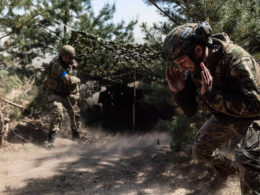"Today, the Council adopted a law covering EU-wide minimum rules for the prosecution of violation or circumvention of EU sanctions in member states. Certain actions will now be considered criminal offenses in all member states, for example, helping to bypass a travel ban, trading in sanctioned goods, or performing prohibited financial activities. Inciting, aiding, and abetting these offenses can also be penalized," said the European Council.Under the new law, member states must ensure that violating EU sanctions is punishable by effective and proportionate criminal penalties, which vary depending on the offense. At the same time, the EU Council said that intentional violation of sanctions "must give rise to a prison sentence as the maximum penalty." Those who have violated EU restrictive measures may additionally be fined. Legal entities, including companies, can also be brought to justice when a person with a leading position in the organization commits a crime. In those cases, sanctions may include the disqualification of business activities and the withdrawal of permits and authorizations to pursue economic activities. The EU Council added that the law would enter into force on the twentieth day following publication in the EU official journal. Member states will have 12 months to incorporate the directive's provisions into national legislation. To prevent the Kremlin from waging the war on Ukraine, several countries have also imposed economic restrictions on Russia. For instance, the US and Japan. In April 2024, the Japanese Ministry of Trade said new sanctions from the country would target the supply of 164 types of goods that could aid Russia’s industrial and oil and gas sectors.
Japan imposes export controls on Russia, targeting industrial and oil, gas sectorsAmong them were oil and gas pipelines, motor oils, nitrocellulose, lithium-ion batteries, woodworking equipment, power tools, grinding machines, precious metals, plastics and plastic products, woodworking equipment, steel products, non-ferrous metal products, optical equipment and photographic equipment, inorganic chemicals, fire boats, yachts, canoes, kayaks, light boats, crane vessels, production, and drilling platforms. Read more:
- US officials: Beijing provides Moscow with components to boost military production
- Ukraine’s air defense capabilities and the potential for more devastating attacks on critical infrastructure
- ISW: Delayed US military supplies impact the Ukrainian forces’ capabilities to respond to Russian mechanized assaults
- British Intel: Russia increases combat capability of the Russian National Guard





